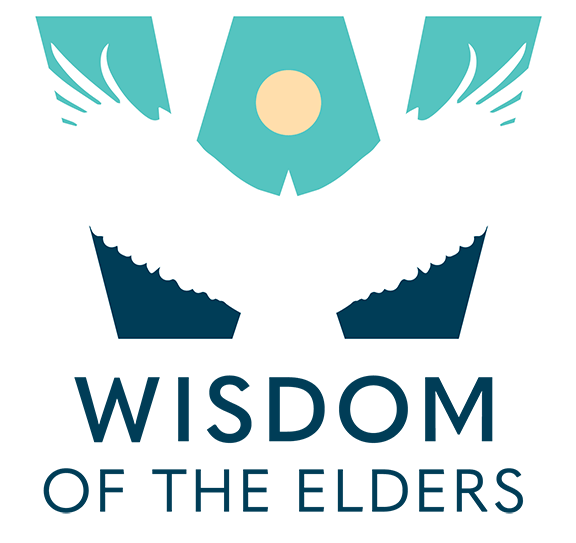Faye Wahneka
with Rose High Bear
[audio:https://www.wisdomoftheelders.org/prog306/mp3/306_hh.mp3]Arlie Neskahi:
Today, on reservations all over America, people are learning to live with Type II diabetes. What we need in Indian Country are role models representing healthy lifestyles. If we look, we’ll find those role models right in front of us – our elders.
Rose High Bear:
Born in 1931, Faye Wahneka was raised by her grandparents on the isolated north end of the Warm Springs Indian reservation. Her grandparents firmly believed in healthy foods, edible roots, berries, deer meat, bear meat, grouse, and salmon, which was considered more medicine than food.
Faye Wahneka:
My activity was carrying wood, carrying water, chasing after horses, which was a lot of exercise. I realize that today. So I ran the fields on a hot summer day. I look back at it with real great memories. How healthy we lived! We only ate three meals a day. We never ate between meals. A lot of work from morning ‘til night. That was our life style. Always happiness. Always laughter.
High Bear:
Faye was the first in her family to be diagnosed with diabetes. Without realizing, she had gone from a healthy way of life to a world of fast food and stress.
Wahneka:
Today we live in a different world where we worry about time management. Eating fast food. Short lunch break, or no lunch break. We tend to eat junk food, which I totally blame why I am a diabetic today. I never took the time to look at a healthy lifestyle. We need to work with our time management and our lifestyle.
High Bear:
Three of Faye’s children are diabetic. One in particular has become a model patient, in more ways than one.
Wahneka:
My daughter is controlling her diabetes without no medication and Jenny, the diabetes nurse, is very proud of her. And they’ve made a calendar and she’s going to be in this calender exercising down at the gym. My daughter walks every morning, break time, noon, break time, in the evening. She runs where our fire fighters train. She runs those hills up there in the evening. And she runs a few miles from our home. And she runs the Hood to Coast Run.
High Bear:
Faye regularly attends the diabetes breakfasts, mineral pool swims and special health programs hosted by her tribe.
Wahneka:
We have natural mineral springs. We have a resort called Kahneeta Resort and we have an olympic swimming pool. So during the summer months we have a lady named Lucinda that takes water exercises and they thoroughly enjoy that. And they have healthy snacks afterwards or maybe they come home and have a healthy lunch.
High Bear:
Faye and her children could face difficult challenges in the years ahead. But there is hope. As Faye suggests, perhaps the good news is locked in the past.
Wahneka:
And I think the whole community, in all Indian Country, we should return back and pay ourselves a visit and look at the healthy lifestyle that our ancestors lived. They didn’t suffer stress. And they had very good attitudes. So hopefully a message carries across the United States to all the Indians, no matter where we are, to look at fry bread and wish for it and walk away from it. Or take one bite and chew very slow. That is good enough
High Bear:
For Wisdom of the Elders, this is Rose High Bear.

